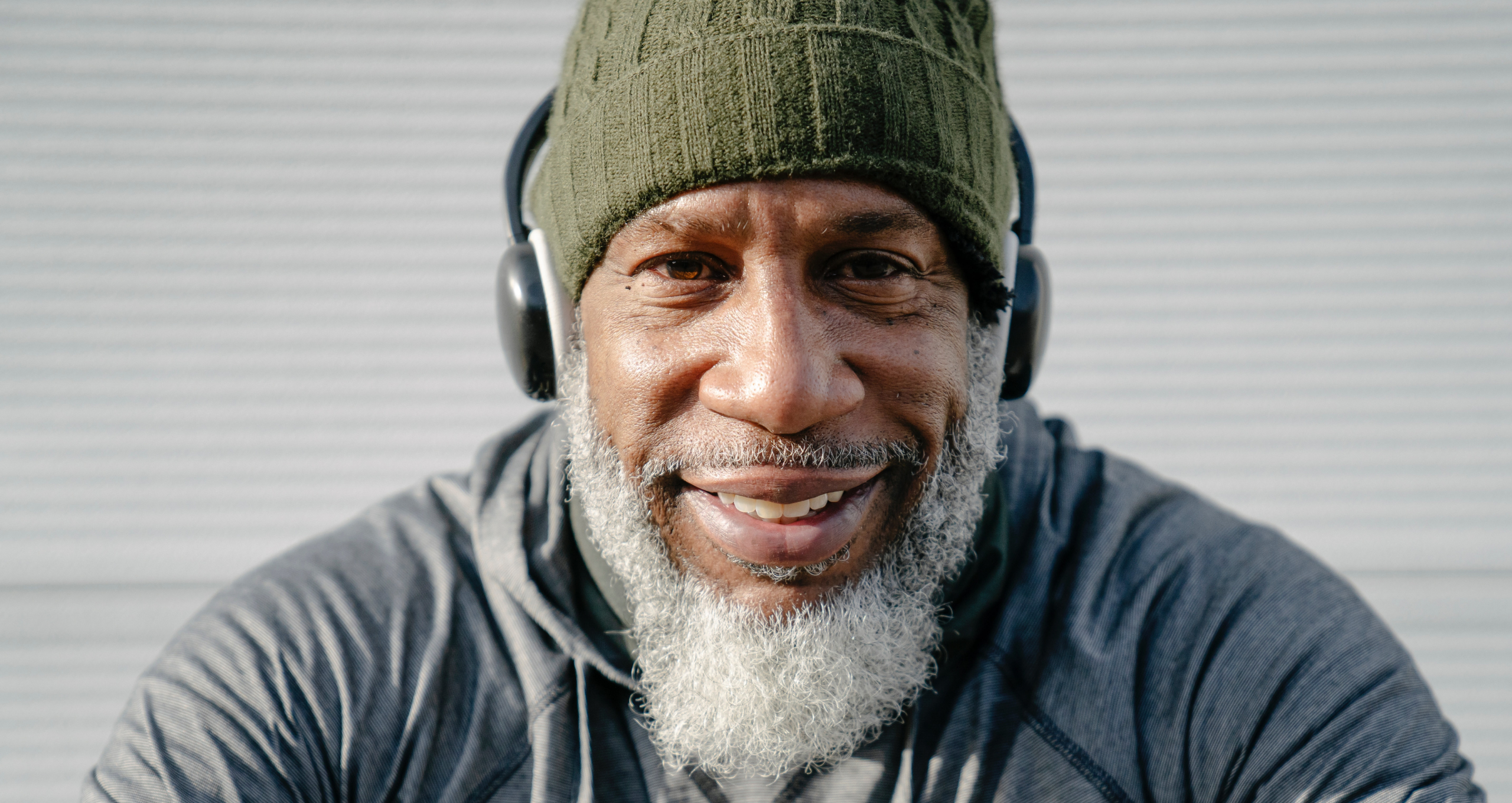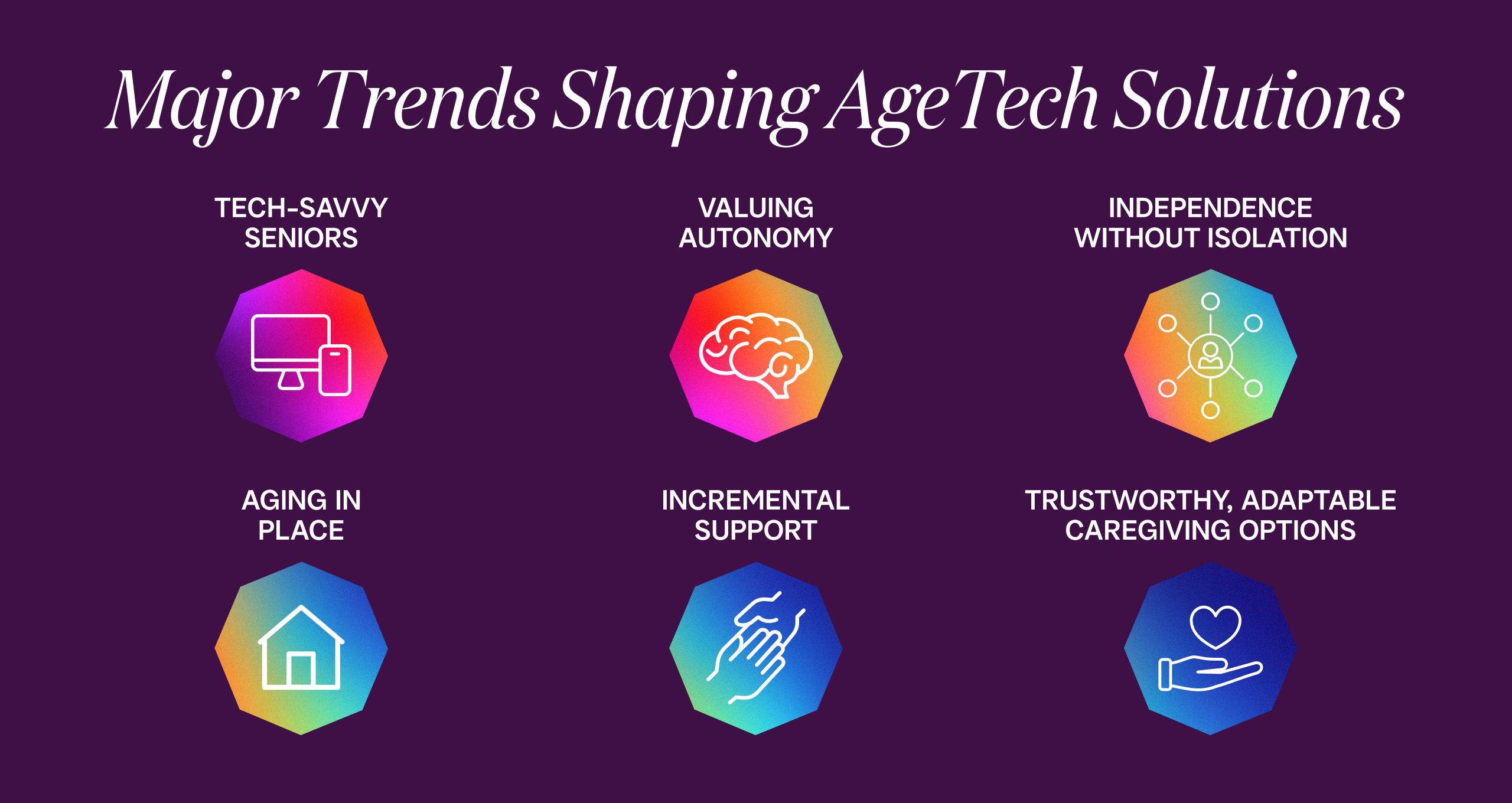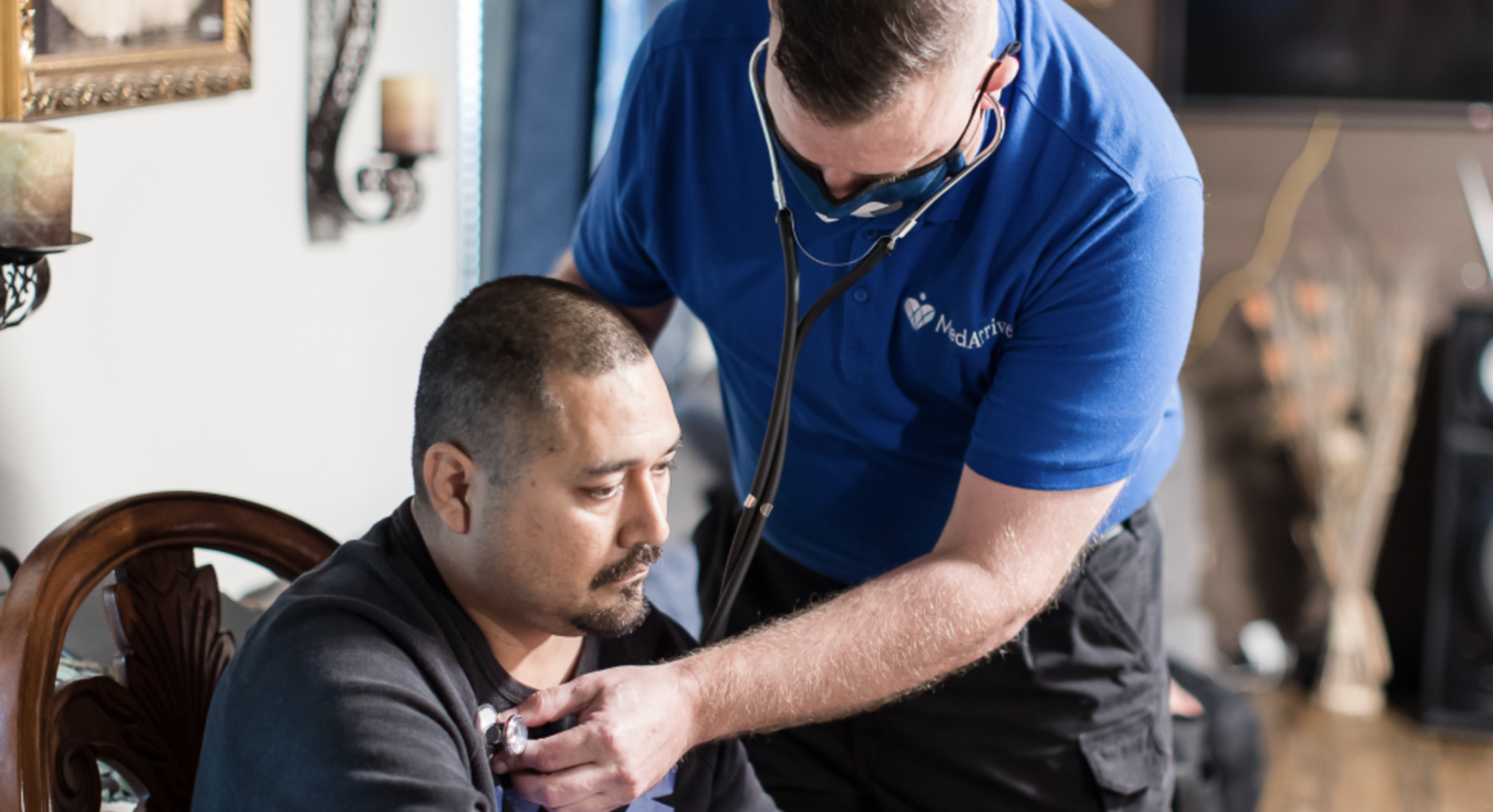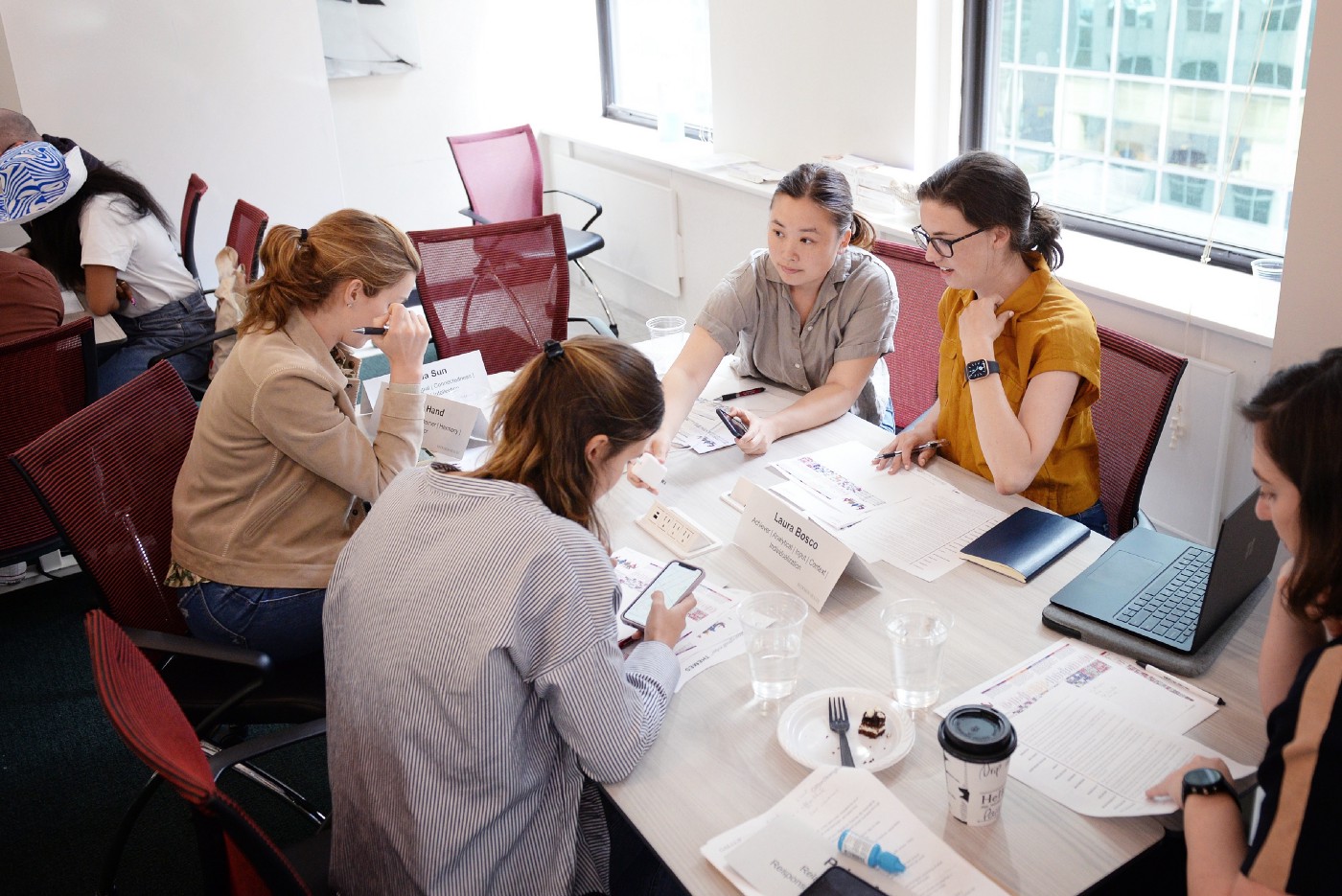
Investing in AgeTech: Serving the Growing Senior Health Market
Improving the healthcare experience for seniors has been a major focus for innovation over the past decade. But many factors underscore the need for continued progress including the growing 65+ population, increasing life expectancy and the prevalence of high-cost conditions.

Technology is a key part of the solution. Cue: the rise of AgeTech, a frontrunner in the growing senior health market. This category of technology and tech-enabled solutions is designed to support older adults, as well as their caregivers and providers.
Common aspects of AgeTech solutions include:
Hybrid care that offers both virtual and in-person options
Treatment plans that support patient independence and provide wraparound care
Models that rely on targeted engagement of seniors
Care approaches that better integrate family members and other caregivers
Innovations that allow for aging in place, safely and with dignity
The AgeTech landscape has matured significantly over the past decade, especially with its newfound focus on the patient experience. Health and wellness startups have driven advancements in remote monitoring, digital medication management, and smart home and smart apparel applications, as well as enabling services for providers and caregivers.
A Holistic Approach to Senior Health
The current wave of AgeTech solutions are taking a nuanced, holistic approach to health, while also addressing social determinants such as housing security, nutrition, safety, and community and social engagement. These tools are reducing friction along the healthcare journey, driving meaningful improvements in health outcomes and patient satisfaction.
That’s crucial given how frequently many seniors engage the healthcare system due to chronic diseases and comorbidities. Such conditions are increasingly costly, with the USC Sol Price School of Public Policy estimating that Medicare’s annual spending on acute care will reach $260 billion in 2030.

Future Opportunities in AgeTech
Redesign Health has launched Operating Companies specifically focused on the senior population. We see opportunities to further improve the patient experience for seniors, particularly those who use Medicare. Some of these opportunities include hybrid business models that prioritize patient engagement, particularly in specialty niches such as mental health.
We’re seeing six major trends shape the development of AgeTech solutions:
1. Tech-savvy seniors
Older adults are commonly misconstrued as a monolithic demographic with little tech know-how, instead our research reveals that seniors today are more independent, tech-enabled and engaged than past generations. This cohort broadly embraces new tech, especially when purpose-built with their specific needs, goals and preferences in mind.
2. Valuing autonomy
Our research suggests that older adults feel pervasive optimism about what they’re capable of and what life looks like for them. They often feel younger than they are, and they commonly feel misrepresented by healthcare solutions and ads that evoke an outdated vision of what it means to grow older.
3. Independence without isolation
In our research, 4 in 5 older adults at high risk of isolation say that planning to lose their independence is more emotionally difficult than planning for their funeral service. Seniors value staying connected and engaged with peers, pointing to a demand for community-engagement and other recreational networks.
4. Aging in place
Seniors strongly desire the ability to age in place, and these preferences are driving investments into technologies that enable care in the home, including hospital at home models, remote patient monitoring and smart home alerts. Similarly, loved ones and caregivers are driving a demand for tools that enable them to be engaged in care plans as well as those that keep seniors safe from scams.
5. Incremental support
Seniors currently receive the most help with tasks like housework, cleaning, laundry, maintenance and yard work. This suggests that they’re looking for help that is flexible and incremental–as much or as little as they need. They also want options that enhance their lives, rather than limit their independence.
6. Trustworthy, adaptable caregiving options
Seniors express concerns around trusting new people. They prioritize safe consistent care. Communicating these attributes is crucial to gaining trust and adoption of new solutions.

Serving the Behavioral Health Needs of Older Adults
Redesign Health is also working to address older adults’ mental and behavioral health needs. We recently surveyed nearly 1,500 people aged 65 and older and learned that many seniors live with mental health conditions while coping with significant life events:
Older adults experience high rates of mental illness: Results showed that 71% of participants live with mental health conditions such as depression, anxiety, loneliness, post-traumatic stress disorder (PTSD), bipolar disorder or adjustment disorder. Many also live with chronic pain, which can further impact their quality of life and mental health.
Older adults experience triggering life events at an exceptionally high frequency: Nearly three-quarters of participants reported a triggering life event in the past year, such as a visit to the emergency room, receiving a new medical diagnosis for themselves or a loved one, experiencing the death of a loved one or giving up forms of independence, such as surrendering a driver’s license or accepting in-home care services.
Many older adults are coping with both triggering life events and mental health concerns: Over 50% of respondents had recently experienced a triggering life event while also living with a mental health condition.
One of our stealth companies is building a virtual-first behavioral health solution for the Medicare-age population. Using a hybrid care delivery model and senior-oriented user experience, this Operating Company will increase access to quality behavioral health services and deliver more effective interventions for older adults.
Our research indicates that the market for senior-focused behavioral solutions remains largely untapped, placing Redesign Health in a prime position to significantly impact the healthcare journeys of America's aging population.
Building a dynamic ecosystem for healthier aging
Redesign Health has launched several Operating Companies that serve a variety of needs across the senior demographic:
DUOS: Empowering independence
The needs of older adults can vary dramatically, and one-size-fits-all solutions won’t work for such a broad population. Instead, health and support services must respond dynamically as health needs evolve.
Seniors are looking for help that is incremental (as much or as little as they need) and in areas that enhance their lives instead of restricting their ability to live independently. This includes areas like housework, yard work, laundry, and home maintenance.
DUOS, built at Redesign Health, is helping empower seniors to maintain agency and independence as they grow older. DUOS pairs older adults with a personal assistant who uses purpose-built AI technology to help clients access precisely the services and resources they need, at exactly the right time. As a result, they get the help they need while maintaining the independence they want.
Together Senior Health: supporting cognitive well-being
1 in 9 seniors are living with Alzheimer’s or dementia (ADRD). These seniors - and their caregivers - struggle with quality of life and independence while their medical costs skyrocket. Research shows that older adults want resources that enable connection, cognitive health, and dementia support.
Together Senior Health, a company built at Redesign Health, provides evidence-based solutions for seniors with ADRD and other forms of cognitive decline. Patients connect with other seniors through live-streamed classes that are focused on physical movement, balance and coordination, and social connection. These programs can help seniors maintain their health and independence while reducing the total cost of care for health plans or value-based care delivery organizations.
Keen: personalized Medicare support
Though many seniors wish to maintain their independence, they’re also safety-conscious and seeking protection from abuse or scams. This highlights the demand for services that not only support vulnerable adults but also safeguard them from fraud.
Our Operating Company Keen is leveraging the power of trust-based relationships. Keen combines personalized support with purpose-built technology to help Medicare-eligible customers find the right Medicare plan.
Keen advisors develop long-term relationships with their clients, providing a direct and personal connection for aging adults. This personal relationship is augmented by custom-built technology that enables customers to connect with their Keen advisor easily and friction-free.
Final Thoughts
As healthcare costs escalate for America’s fastest-growing demographic, policymakers and healthcare systems must examine new technologies and smarter workflows that can help improve patient outcomes and experience, while reducing total cost of care.

Within this landscape, there are significant opportunities for investment and innovation that target engagement-driven solutions for older adults. Areas like behavioral health and care coordination services hold considerable potential, particularly as the Medicare Advantage population continues to grow. With the right implementation, AgeTech can equip seniors — and their ecosystem of caregivers and providers — with the tools they need, when and how they want to use them.
![No alternate text]() Redesign HealthDemystifying Healthcare Innovation: 4 Lessons on Driving Meaningful Change
Redesign HealthDemystifying Healthcare Innovation: 4 Lessons on Driving Meaningful ChangeInnovation is a frequently used buzzword in healthcare. Despite its widespread usage within our industry, achieving tangible value and impactful outcomes often proves challenging.
April 16, 2024
![No alternate text]() Healthcare TrendsRedesign Health2024 Health Trends: 4 Experts Discuss Key Innovation Priorities
Healthcare TrendsRedesign Health2024 Health Trends: 4 Experts Discuss Key Innovation PrioritiesTo uncover the most pressing healthcare issues—and possible solutions—on the horizon for 2024, our team polled four influential industry thought leaders and Executive Advisory Board members at Redesign Health.
January 10, 2024
![No alternate text]() MedicaidModernizing Medicaid with a Multi-Stakeholder Financing Model
MedicaidModernizing Medicaid with a Multi-Stakeholder Financing ModelDiscover how a multi-stakeholder financing model could overcome some of Medicaid’s obstacles, dramatically improving health and quality of life outcomes for Medicaid recipients while generating savings across government programs.
November 15, 2023
![No alternate text]() Chronic CareRedesign HealthWraparound Care: The Next Frontier in Chronic Care Management
Chronic CareRedesign HealthWraparound Care: The Next Frontier in Chronic Care ManagementExploring tech-infused strategies to manage chronic conditions
September 05, 2023
![No alternate text]() ADVISORSRedesign HealthRedesign Health Advise: Leveraging Experts and Insights to Expand Impact
ADVISORSRedesign HealthRedesign Health Advise: Leveraging Experts and Insights to Expand ImpactThe Redesign Health Advise program connects our team and founders with a deep bench of experts from across the healthcare industry.
June 29, 2023
![No alternate text]() Senior HealthRedesign HealthInvesting in AgeTech: Serving the Growing Senior Health Market
Senior HealthRedesign HealthInvesting in AgeTech: Serving the Growing Senior Health MarketProviding targeted tech solutions for aging adults
June 14, 2023
![No alternate text]() Shifting Sites of Patient Care: Driving Value in Alternative Settings
Shifting Sites of Patient Care: Driving Value in Alternative SettingsRight care, right setting: Unlocking value in alternative sites of care
April 27, 2023
![No alternate text]() Value-Based CareThe Evolution of Value-Based Care: Exploring Challenges and Opportunities in Adoption
Value-Based CareThe Evolution of Value-Based Care: Exploring Challenges and Opportunities in AdoptionRedesign Health Venture Chair Missy Krasner recently hosted a roundtable discussion with leaders in the Value-Based Care Industry to explore how the adoption of value-based care is unfolding--and what to expect in the coming years.
February 15, 2023
![No alternate text]() James QuarlesThe Kids Aren’t Alright: Addressing the Adolescent Mental Health Crisis With Accessible, High Quality, Evidence-Based Practice
James QuarlesThe Kids Aren’t Alright: Addressing the Adolescent Mental Health Crisis With Accessible, High Quality, Evidence-Based PracticeResearch shows that mental health disorders have surpassed physical conditions as the most common causes of impairments and limitations in children. Suicide was the second-leading cause of death among 10 to 14 year-olds in 2020.
February 15, 2023
![No alternate text]() PartnershipsRedesign HealthPartnering with Leading Health Systems to Drive Change and Improve Outcomes
PartnershipsRedesign HealthPartnering with Leading Health Systems to Drive Change and Improve OutcomesAt Redesign Health, we firmly believe the US healthcare system desperately needs innovation to address our lagging health outcomes, sky-high costs and uneven access to care.
February 09, 2023
![No alternate text]() Platform, Company CreationBehind the Curtain: Redesign Health's Company Creation Process
Platform, Company CreationBehind the Curtain: Redesign Health's Company Creation ProcessIt's easy to say healthcare is broken. It's much harder to fix it. At Redesign Health, we’re up for the challenge.
February 01, 2023
![No alternate text]() Healthcare TrendsHealthcare’s Biggest Trends in 2023: Industry Forecast from Redesign Health
Healthcare TrendsHealthcare’s Biggest Trends in 2023: Industry Forecast from Redesign HealthPowering healthcare innovation at scale is the heart of our work at Redesign Health. With 2023 on the horizon, we surveyed our cross-functional team of industry leaders for their forecast for 2023’s biggest trends in healthcare.
December 15, 2022
![No alternate text]() Insights from the Redesign Health Ecosystem: Improving Healthcare for Older Adults
Insights from the Redesign Health Ecosystem: Improving Healthcare for Older AdultsRedesign Health Venture Chair Missy Krasner recently hosted a roundtable discussion with leaders from three of our Operating Companies to explore the state of older adult healthcare in the U.S. and how their teams are facilitating healthier aging.
October 21, 2022
![No alternate text]() ResearchRedesign HealthStuck in the Middle: Healthcare Solutions for Older Adults Shouldn’t Be One Size Fits All. Here's Why.
ResearchRedesign HealthStuck in the Middle: Healthcare Solutions for Older Adults Shouldn’t Be One Size Fits All. Here's Why.There will be more older adults than children in America by 2035. We are not ready. A one-size-fits-all approach to older adult healthcare simply won’t be able to comprehensively support the needs of so many aging people.
October 05, 2022
![No alternate text]() Company CultureRedesigning Company Culture
Company CultureRedesigning Company CultureWe have big ambitions at Redesign Health: to make humanity healthier and to redesign healthcare for everyone. We strive to do things differently here, and building our company culture is no exception.
July 18, 2022













